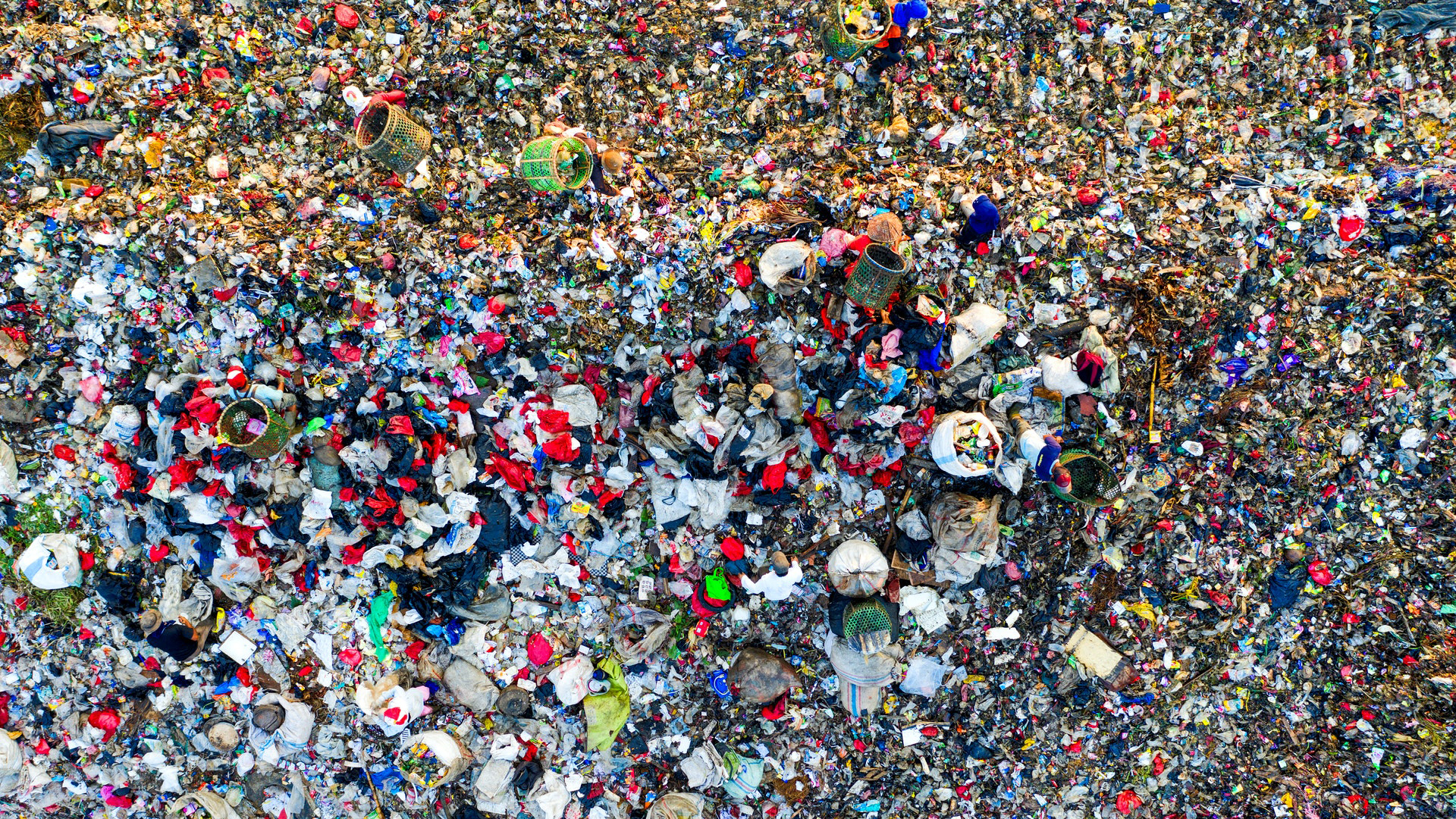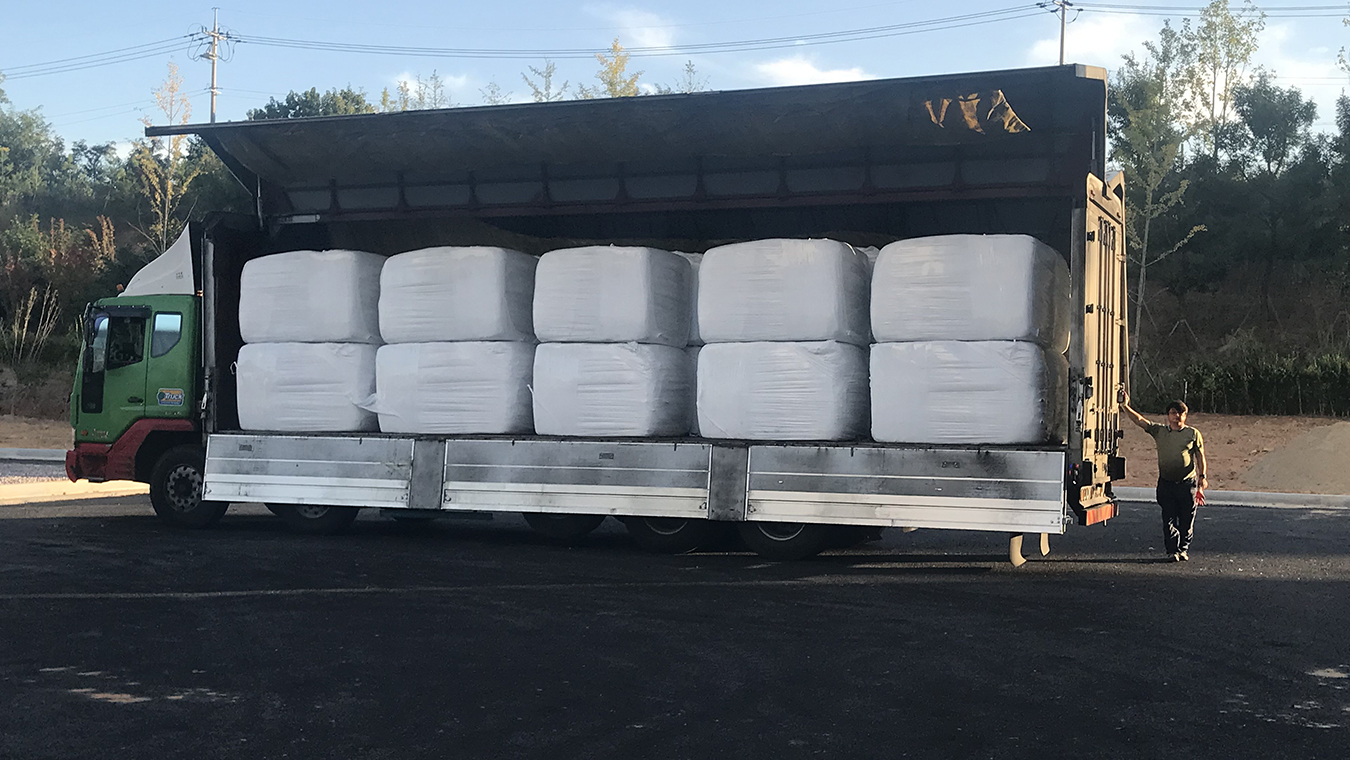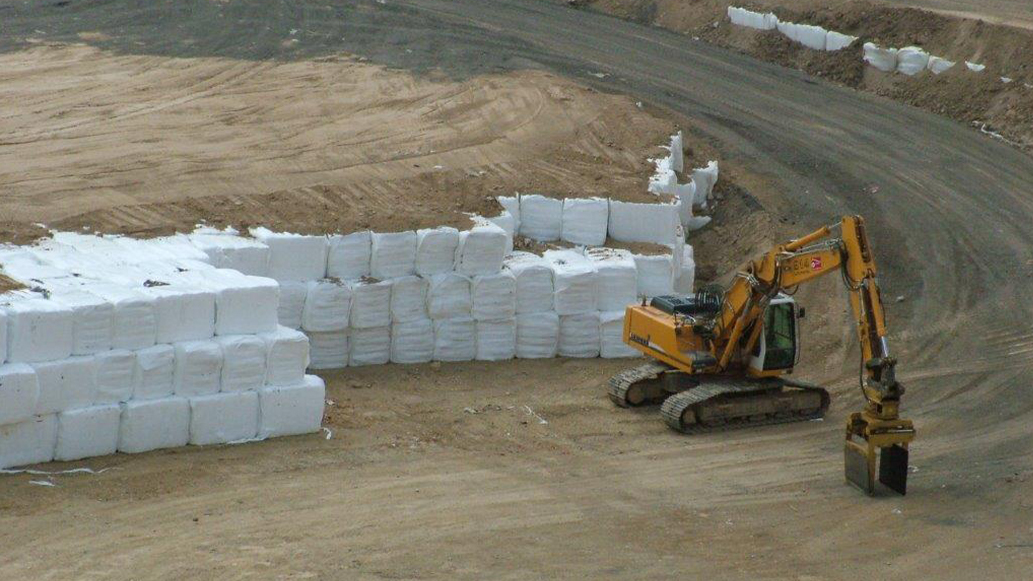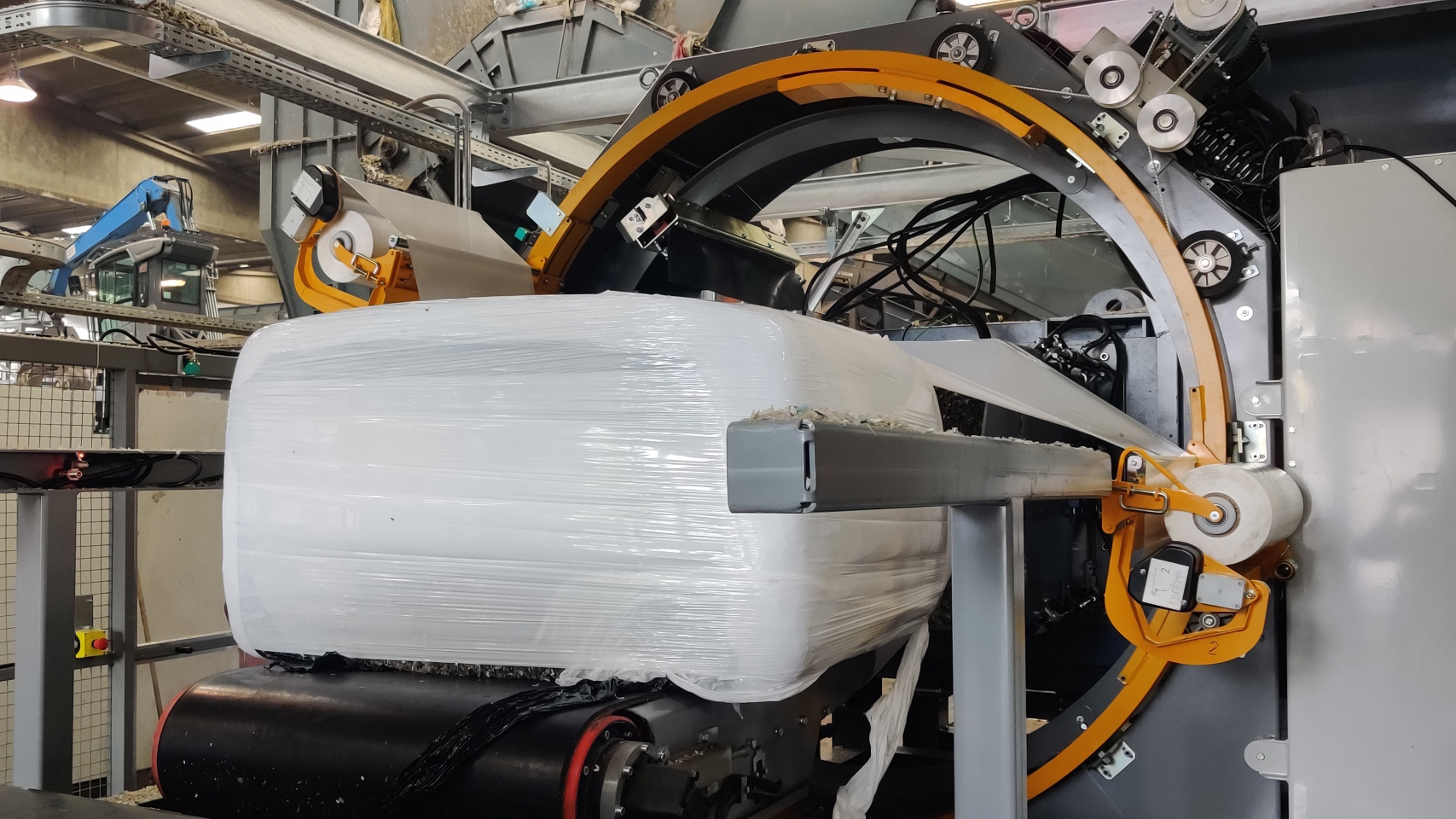Blog
Waste management in America: moving from landfilling towards more sustainable alternatives
Waste management in America
Waste management in the United States is not as modern or environmentally sound as compared to other Western countries. As landfilling is still a very common way to deal with all types of waste, the environmental impact of American waste industry is quite significant. Operators amongst the waste industry have begun to advocate for change to mitigate methane emissions and the other negative effects of landfilling.
This blog reveals how Cross Wrap’s solutions can make waste management processes more efficient and help to lessen the environmental impact of American landfills.
Methane emissions are a detrimental byproduct of landfilling.

It is estimated that there are thousands of active and inactive landfills in the US – the estimations range between 2000 and 10 000. They produce large methane emissions, which is a greenhouse gas that is a significant contributor to climate change.
Methane emissions, which account about 50% of the overall landfill gas emissions, are created during the aerobic decomposition stage of waste. Methane is a very detrimental greenhouse gas, as it is much more harmful than for example CO2, which usually is the main culprit of climate change in environmental discussions.
According to the United States Environmental Protection Agency, municipal solid waste landfills in the U.S. are the third largest source of human-produced methane, accounting for more than 15% of all methane emissions in 2019. These emissions are the equivalent of 21,6 million passenger vehicles driven during one year.
In terms of greenhouse gases, methane is more harmful to the environment than than CO2.
In addition to the emissions, uncovered loose waste poses other risks. Pollution leakages to the ground and surface water are common, as are landfill fires. The fires do not only cause environmental problems with smoke and potential ground fires, but also are a huge security risk and result in millions of dollars’ worth of property loss each year. It is estimated that there are more than 8000 landfill fires each year.
Is waste-to-energy the future of waste management in America?
Waste management in America is slowly changing, and with the change, more ways to curb the environmental effects of landfilling are taking place. One of these ways is to move towards waste-to-energy operations – and this is what some actors in the U.S. waste management sector are striving to. There is a call for government incentives towards taking waste-to-energy into a new and prevalent green energy option.
Increasing waste-to-energy is a far more sustainable option than landfilling, as it reduces methane emissions significantly. Turning non-recyclable waste into an alternative fuel like RDF or SRF is a sustainable way to reduce landfilling.
Cross Wrap has pioneered in creating solutions for the waste-to-energy sector. Cross Wrap Bale Wrappers help you to maintain waste fuel before they are utilized in a waste-to-energy facility. By cross wrapping alternative fuel bales, you ensure that the material can handled, stored, transported, and reused more efficiently.

Wrapping bales make waste-to-energy operations more efficient.
The wrapping helps weatherproof the bales, which eases storage. Compared to loose waste material, wrapped bales are easy and cost efficient to transport with all different vehicles, regardless of the distance. Wrapping helps to retain the energy value of the material, as there is no oxygen for the trash to begin decomposition or fermenting. Completing the process with the CW Bale Opener ensures that the alternative fuel bales are opened safely and automatically for use in the waste-to-energy facility.
Read more on alternative fuel management: Case RePower South
Dry landfilling is a better alternative for traditional landfill practices
It is expected that there is push back amongst U.S. landfill owners on any calls or initiatives towards increased use of waste-to-energy. In addition to waste-to-energy, there are other options to minimizing the negative impacts of landfilling. Moving towards a more environmentally friendly landfill management methods, like dry landfilling, is another way to make waste management more sustainable.

Waste is baled and wrapped neatly in dry landfills.
Dry landfilling is more effective in terms of costs and space use, compared to traditional landfilling. Instead of dumping loose material to the landfill, the waste is baled and wrapped. Cross Wrap’s Bale Wrappers do not only protect the material inside the bale, but also isolate the material from surrounding environment. This helps to minimize leachate, greenhouse gas emissions, odors, and pest problems. When the waste is not subjected to changes in the weather, there are overall less safety hazards associated with your operation.
Instead of dumping loose material to the landfill, the waste is baled and wrapped.
Neat and dense waste bales are fireproof, as the wrapping ensures there is no oxygen for the waste to start the aerobic decomposition. Methane gas pockets and rising temperatures are a combination that can cause spontaneous combustion. When waste is tightly and neatly baled, wrapped, and stacked, the likelihood of combustion is smaller.
Utilizing dry landfilling methods also helps to retain the waste materials’ energy and keep the waste stored safely for possible future use. If there is a need to reopen the dry landfill, the waste can easily be recycled or processed as alternative fuels. The dry landfill methods help fight time in densely populated areas where waste streams are large, and recycling or waste-to-energy facilities are still developing.
Read more on efficient dry landfill management: Case Municipality of Rocha
Waste management in the United States at a glance
- Operators in the waste management sector in the United States are calling for a change in the industry.
- Moving towards waste-to-energy solutions, as well as opting for dry landfilling methods are both suitable options for reducing methane emissions, landfill fires and leakages that related to traditional American landfills.
- Cross Wrap’s Bale Wrappers help to store, transport and handle waste or alternative fuel bales safely and efficiently.
- When alternative fuel bales are ready to be used in waste-to-energy facilities, Cross Wrap’s Bale Opener opens bales automatically and effectively.

The CW Direct Bale Wrapper is an excellent solution for waste-to-energy operations.
Decades of experience in waste management machinery
For decades, Cross Wrap has been dedicated to supporting sustainability efforts in the waste industry by creating efficient waste management solutions.
If you want to hear more about our solutions for waste management in the United States, get in touch with us. We are happy to tell you how our machinery and expertise could help to make your operations smarter and more sustainable.

- Call our U.S. Sales Manager today: Fernando Vargas, tel. +1 512 676 8924
- Email: sales@crosswrap.com
Read next: A new mobile baling and wrapping solution
